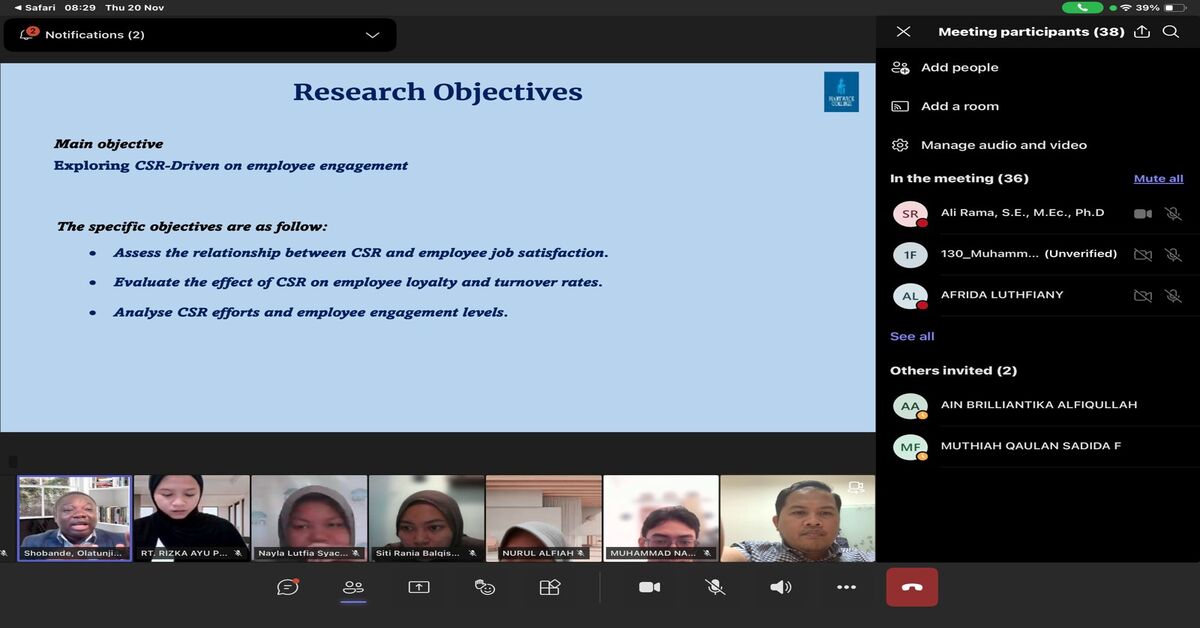Session 2 Research Camp, Sharia Economics Study Program Presents Expert from Hartwick College USA
Jakarta, November 20, 2025 — The Sharia Economics Study Program at the Faculty of Economics and Business, UIN Syarif Hidayatullah Jakarta, continued its 2025 International Student Research Camp series with the second session held online via Microsoft Teams. This session featured Dr. Olatunji Abdul Shobande from Hartwick College, USA, as the keynote speaker, who is also a Research Fellow at UIN Syarif Hidayatullah Jakarta. The event took place on November 20, 2025, from 8:00 a.m. to 10:00 a.m. Western Indonesian Time and was moderated by Ali Rama, PhD, Head of the Sharia Economics Study Program.
In his presentation, Dr. Olatunji provided comprehensive technical guidance on the process of writing a good scientific article. He explained the steps from determining the right title, selecting relevant variables, formulating logical and theory-based hypotheses, to data management and interpretation techniques. With a strong track record of international publications, he also presented several examples of his articles published in reputable journals as references for students who wish to improve the quality of their theses into scientific publications.
In addition to presenting material, this session was conducted in a dialogical manner. Dr. Olatunji directly reviewed several student thesis proposals, covering topics in the fields of Islamic development economics, Islamic capital markets, and zakat. The responses and input provided helped students understand how to sharpen their problem formulations, strengthen their theoretical foundations, and ensure the suitability of their methodologies for their research objectives.
During the question and answer session, one of the participants, Aini, asked whether control variables should still be included in the model even if they were not the main focus of the research, and whether the insignificance of the main variables indicated that the research was not good. In response, Dr. Olatunji provided an in-depth explanation that the research model must be built on a strong theoretical foundation. Control variables are still necessary as long as they have a theoretical relationship with the topic, even if they are not the center of analysis. Meanwhile, insignificant main variables do not mean that the research is poor; rather, they are valid and important scientific findings as long as they are supported by appropriate theoretical and methodological explanations.
Closing the event, Ali Rama, PhD, expressed his deep appreciation to Dr. Olatunji for his willingness to share his experiences and knowledge. He emphasized that the presence of international speakers at this Research Camp was a valuable opportunity for students to upgrade their research skills, broaden their publication horizons, and experience the global academic atmosphere. This activity, he continued, reflects the commitment of the Islamic Economics Study Program to continuously innovate in teaching and research to enhance the quantity and quality of publications by both students and faculty members.
This second session is a key component of the 2025 International Student Research Camp, which aims to strengthen students' research competencies from an early stage and prepare them to contribute to scientific literature at both national and international levels. (AR/AC)

